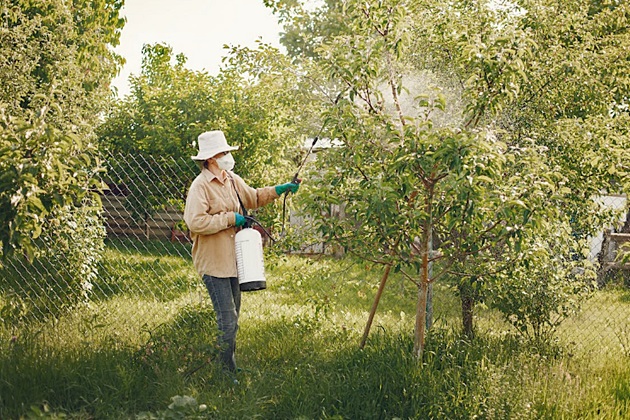885

Euractiv reports that the European Parliament has categorically rejected a proposal regarding the EU's pesticide reduction plan, effectively overturning the regulation in a lamented move by environmental groups but celebrated by EU farmer associations.
Controversial Proposal
The controversial proposal of the Sustainable Use of Pesticides (SUP) regulation aimed to halve the use and risk of pesticides by 2030, as outlined in the EU's flagship food policy, the Farm to Fork strategy. After months of controversy, the European Parliament attempted to establish its final position on the dossier but came up empty-handed as lawmakers ultimately voted to reject the entire text due to a series of amendments, many of which were introduced by the Parliament's conservative right-wing – which dismantled key elements of the SUP.
This included, for example, the procedure for setting national reduction targets and monitoring their implementation, as well as a weakening of restrictions on pesticide use in sensitive areas.
For Green MEP Sarah Wiener, who led the work on the dossier, the rejection was a "bitter blow" to environmental and public health protection, citing an "unholy alliance of the far right, conservatives, and liberals" that succeeded in "killing the entire position of the Parliament."
However, she defended the decision to vote down the "amputated" final text, saying that the resulting text was not one they could vote for with a clear conscience.
Also, liberal MEP Pascal Canfin, the chair of the Parliament's Environment Committee (ENVI), said that the bar is "so low" regarding the final compromise that it would be a "retorsion of the [2009] sustainable use directive."
"Starting Over"
For Clara Bourgin, an activist with Friends of the Earth Europe, the failure to reach a compromise sends the EU "back to square one, with no proposal to address the biodiversity crisis, ensure long-term food security, and protect human health."
Meanwhile, Marilda Dhaskali, EU agricultural policy officer for BirdLife Europe, criticized EU politicians who "chose a path that promises a bleak and challenging future for both us and our children." However, the EU farmers' association COPA-COGECA welcomed the outcome of the vote, stating that "through [this rejection], MEPs have sent a decisive message: the lack of dialogue, the imposition of top-down objectives, the refusal to assess the impact, and the lack of funding for agricultural proposals must now stop," denouncing the "gap between political rhetoric and the lack of concrete solutions" in the dossier.
Also, center-right MEP Peter Liese, spokesperson for the conservatives in the environment committee, celebrated this as a "good day for farmers and for all those who believe that the EU must refrain from new burdens in the current difficult global situation."
"Reducing and carefully using plant protection products are important to me, but this proposal was absolutely useless," he said, adding that there is now "an opportunity for the Commission and Parliament to develop a sensible concept in cooperation with the agricultural sector in the next legislature."
Uncertain Next Steps
Following the vote, there was uncertainty about the next steps, as the European Parliament's rejection of a Commission proposal at the first reading without referring it back to the lead committee is very rare.
The two likely options are either the EU executive withdrawing its proposal on its own, or EU ministers deciding to continue working on the dossier regardless of the European Parliament's vote.
When asked by Euractiv, a Commission spokesperson said that the EU executive "takes note" of the vote but refused to say whether it would now fully withdraw the proposal. Meanwhile, a representative of the EU Council said that EU ministers intend to "continue working" on the dossier. The Spanish presidency had previously hoped for an agreement on their position in December, but the path has been challenging, with member states divided on several issues.
If Spain manages to reach an agreement on the dossier, its position will form the basis for another vote in Parliament, following the rare "early second reading" procedure, which requires approval, rejection, or modification of the Council's text to be approved with an absolute majority of MEPs.




